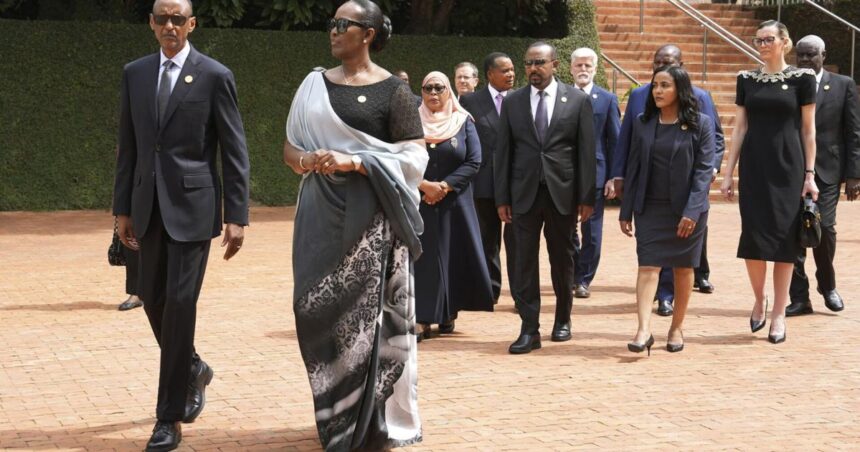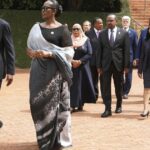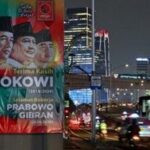NAIROBI, Kenya — The president of a small, landlocked state in central Africa, Paul Kagame, has always had big dreams.
Rwanda’s president has been working on the ambitious goal of bringing a Formula 1 Grand Prix to a country that has made significant progress since the genocide 30 years ago.
Despite Rwanda’s geographical challenges, Kagame has been striving to position the country as a key player in Africa through political, diplomatic, and economic initiatives.
Over the past few years, Kagame has taken measures like deploying troops to engage in international operations and implementing economic reforms to attract foreign investment and improve Rwanda’s business climate.
People are also reading…
Besides these efforts, Kagame has also been focusing on sports to enhance Rwanda’s international presence and engage in global partnerships.
With significant investments in sports facilities, partnerships with European soccer clubs, and hosting global sporting events, Rwanda’s sports profile has been on the rise.
Now, with talks about a potential Rwandan Grand Prix, Kagame aims to elevate the country’s status further and make it a global sporting powerhouse.
While the idea of a Rwandan Grand Prix may seem ambitious given the economic considerations, Kagame’s vision, combined with Rwanda’s reputation for transparency and reliability, makes it a plausible endeavor.
The potential F1 race in Rwanda has sparked discussions and excitement, with F1 executives acknowledging Rwanda’s serious proposal and expressing interest in exploring the opportunity.
As Rwanda progresses with its sports strategy, including discussions with F1 officials, the country’s vision for leveraging sports for development and global partnerships remains a key focus.
Although facing criticism and scrutiny over human rights records, Rwanda’s pursuit of sporting opportunities reflects a wider trend among nations to use sports as a strategic tool for economic and geopolitical influence.
As Rwanda navigates the complexities of hosting major sporting events and balancing economic risks, the outcome of the country’s sports strategy could have significant implications, both economically and diplomatically.





